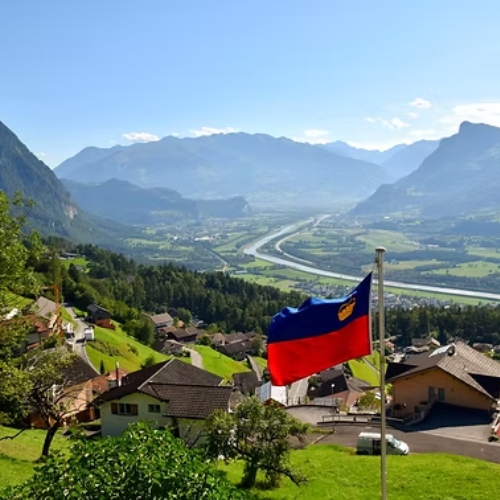Liechtenstein is one of the smallest countries in the world. It’s a quiet, rich place nestled in the Alps, with only about 40,000 people living there. Despite its size, it plays a big role in the world of money and finance. This tiny country has thousands of special financial tools called trusts. Trusts help people protect and manage their money and valuable things like property or yachts.
Many of these trusts have connections to Russians. When the United States put sanctions on Russian individuals and companies because of Russia’s invasion of Ukraine, it created a big problem for Liechtenstein. The sanctions targeted Russian oligarchs, including Vladimir Potanin and Gennady Timchenko — both well-known business figures with close ties to the Kremlin.
Because of the sanctions, the people who managed these trusts became scared they might be punished by the U.S. government. This fear led hundreds of managers to suddenly quit their jobs, leaving many Russian-linked trusts without anyone to look after them. Without managers, these trusts got stuck — no one could access or control the money or assets inside.
Why Are These Trusts So Important?
Trusts might sound complicated, but think of them like special treasure chests. When someone puts money, property, or other valuable things inside a trust, it’s protected and carefully managed. The person who sets up the trust usually chooses someone they trust to look after it.
$450 Billion Vanished! Western Sanctions Leave Russia’s Budget in Ruins
In Liechtenstein, trusts are very popular. There are about 20,000 of them, which means there is about one trust for every two people living there! These trusts hold billions of dollars and are a key part of the country’s financial system.
When the managers of the Russian-linked trusts quit, the treasures inside were frozen. This means no one could access yachts, homes, or money that belonged to wealthy Russians. It’s like if the treasure chests suddenly had no keyholders — everything inside got locked down.
This freeze is a big deal because it shows how powerful sanctions can be. By stopping access to these assets, the U.S. and other Western countries are trying to put pressure on Russia. At the same time, it created a crisis for Liechtenstein. The country now has to figure out what to do with these abandoned trusts and make sure none of the frozen assets fall into the wrong hands.
How Liechtenstein Is Handling the Crisis
Liechtenstein’s government knows this problem is serious. They are trying to fix it quickly. Officials say that out of the 475 trusts affected by managers quitting, about 350 need new managers appointed. Some trusts are being closed, while others are stuck because no one can be found to take over.
Black Gold, Grey Routes: Sanctioned Tankers Deliver Record Russian Oil to India
This situation is the biggest challenge Liechtenstein has faced in years. The trust industry is a huge part of the country’s economy — it’s worth almost 930 billion dollars! If the trusts don’t work properly, it can hurt the whole country, including its banks.
Banks in Liechtenstein are especially worried because if they don’t follow international rules, the U.S. might cut them off from using the dollar. Since the dollar is the world’s most important currency, losing access would be a big problem for these banks and the country’s economy.
The government is thinking about taking more control over these abandoned trusts to make sure they are properly managed and to keep an eye on what happens to the assets inside them. They have also promised that no money or property will be given back to anyone who is sanctioned — meaning those punished by international rules.
Liechtenstein is working with other countries to handle the situation and keep everything legal and transparent. The tiny Alpine nation wants to move away from its old reputation as a secretive place for hidden money. This crisis has shown how connected Liechtenstein is to the wider world and how important it is for the country to follow international rules.


